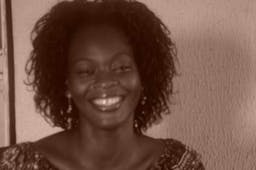Challenges of Women Living With Disabilities In Nigeria
May 28, 2019
Story
When SHE speaks the earth moves underneath me, the heavens shake above me; my heart melts within me.-Anonymous
In 2015 I part of a team working on a proposal for women with disabilities which targeted three geopolitical zones in Nigeria. The project design revolved on training women living with disabilities on gender issues and how to respond to violence against women with components aimed at economic empowerment. Knowing we could not design a project without the contributions of the project beneficiaries we had to involve them in the initial project design in order to identify their unique needs and develop a programme in line with the solutions they proffered.
I facilitated several of the meetings with the women which still remains an experience I treasure dearly for words are not able to describe how I felt listening to the heart rending stories these sisters shared. Our discussions revolved around sexual and gender based violence, social definitions, education and access to opportunities. The meeting was highly informative and reconstructive. It redefined me as a development worker and most importantly as a woman.
I was confronted with the stark reality of the vulnerability of these women who were not able to move around freely. Every movement they made was with a lot of effort and difficulty. Yet they were determined to speak and make a change for I saw intent and purpose in them as we discussed. They spoke like they really wanted to be heard. They wanted a change and knew the only way they could get it was to speak and they did speak.
Social definitions were a big issue for women living with disabilities because stigma is all she knows or may ever know. Social stigma is her every day reality. Society defines being a woman and because they do not fit into these definitions they live with stigma for not being able to fit in. Something she has no power to control or make a choice over. “We are regarded as being less human because we live with disabilities. Society has defined for us who and what we should be”. These were words spoken by one of the women. Her eyes brimmed with tears when she spoke.
Also while violence against women is a social menace many societies are grappling with, the woman living with disability in Nigeria is twice THE victim. Her challenge makes her more vulnerable to violence. They have high rate of prevalence as victims of domestic violence. Their spouses abuse them regularly psychologically, emotionally and physically. “My husband beats me regularly. He knows I am powerless. He tells me all the time he is doing me a favor by being married to me. Every time he says that to me I feel worthless” Yet these women choose to remain in these abusive relationships because they do not want to lose identity as a married woman. That is one form of social recognition they don’t want to part with.
On sexuality women living with disabilities are not regarded as sexual beings and have most of their sexual rights trampled. The power to decide on their sexuality is taken away from them. “We have feelings; we want to enjoy being a woman and be able to express our sexuality”. Women living with disability are very vulnerable to rape as one of the women lamented that being raped was regular when she was growing up. “I had a teacher who molested me sexually. He would take me to a lonely place and ask me to touch him. We women living with disability are very vulnerable to sexual abuse. Growing up years is very challenging for us. Men even see it as doing us favors when they sexually violate you as a girl living with disability. Even when we raise the alarm we aren’t taken very seriously. Their actions speak as though we are to accept the sexual abuse we have experienced as a gift”. They do not negotiate for anything in their relationships with their partners. We experience spousal sex abuse.
Another pertinent issue discussed was on abandonment, the situation where their partners leave without any form of economic supports leaving the vulnerable woman with the sole responsibility of taking care of their children alone. In their desire for love, acceptance and companionship many of these women have fallen victims. They are mostly poor women struggling to survive with little means of livelihood and cannot provide for the basic needs i.e housing, feeding, education. Life is more challenging for them and their children most of their children are not educated they cannot afford to send them to school. “Our children lose out on the opportunity of becoming educated”.
Access to opportunities for women living with disability is very low. Even though there are legal provisions for persons with disability but in practice there are still very evident gaps. It’s easier for a man living with disability to access opportunities than for the women. Even our men do not give us room to partake in available opportunities and this is why women with disabilities are not economically strong.
After a whole lot of effort to make the programme a reality we were not able to succeed on that funding cycle. The experiences however impressed on me the need to help women living with disabilities amplify their voice for change.




